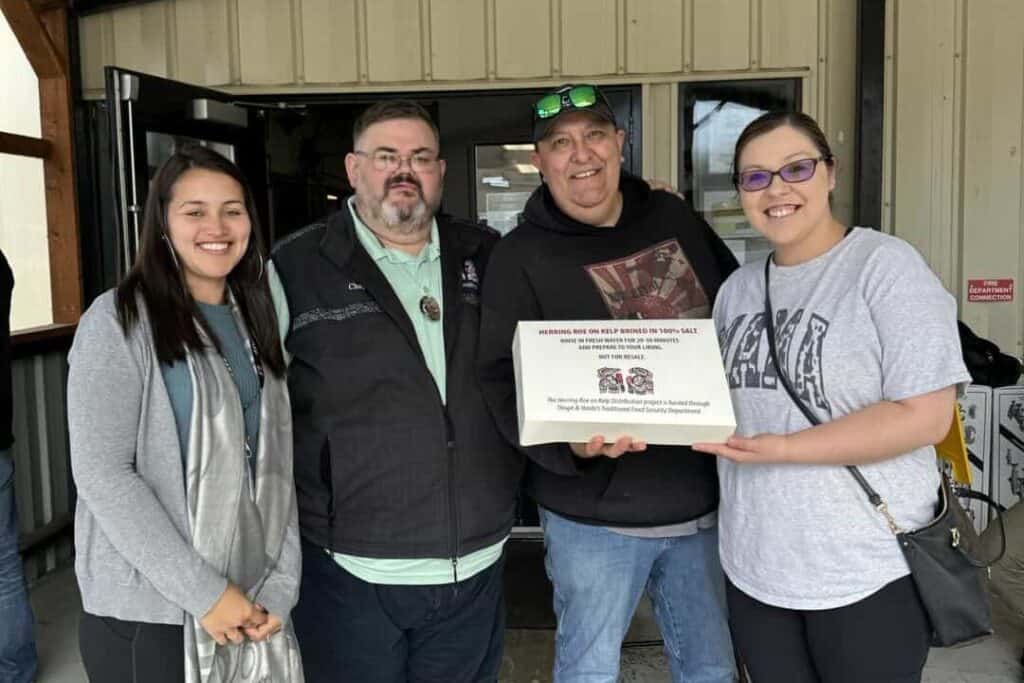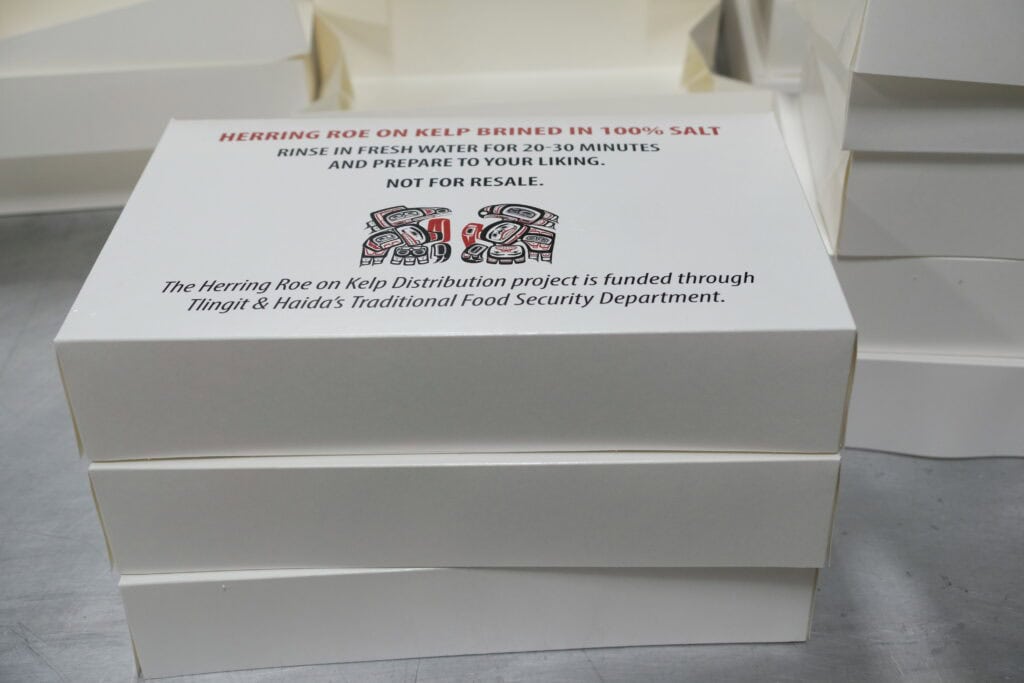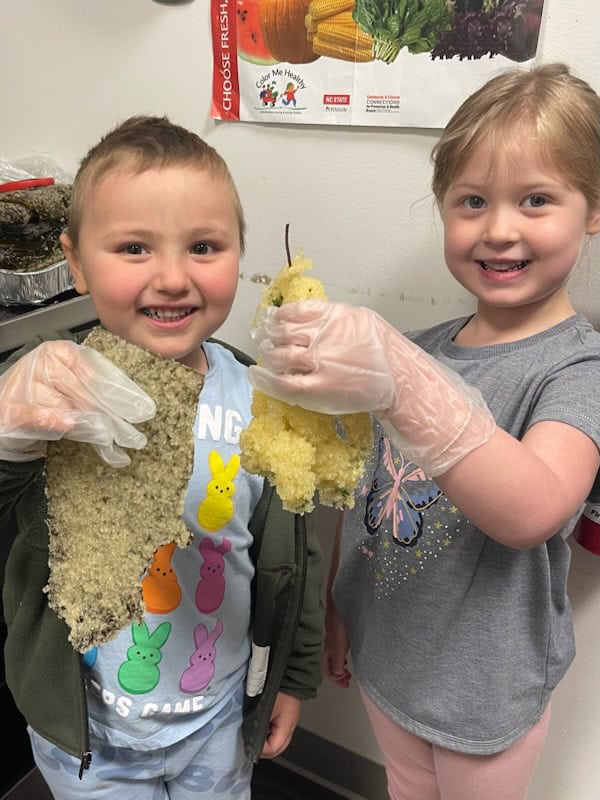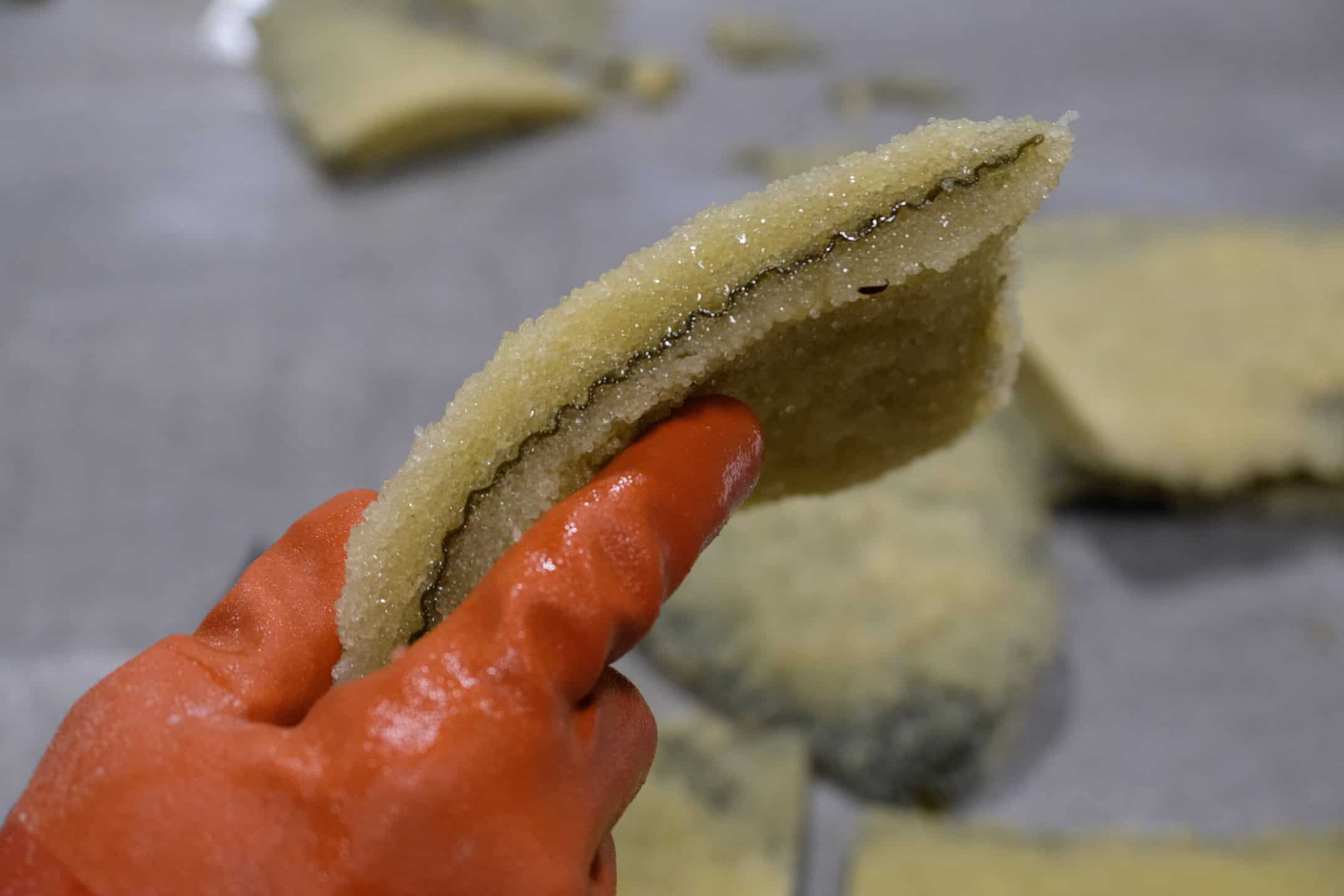Tlingit & Haida’s community food distributions for herring roe and salmon are on hold for 2025 due to federal funding cuts.
The Traditional Foods Security Department was planning to use a half-million-dollar Local Food Purchase Agreement federal grant for the program.

Over the past three years, the Tribe has distributed more than 52,000 pounds of herring roe on kelp, 120,000 pounds of salmon and 31,000 pounds of black cod to the Tribe’s 21 recognized communities.
On January 6, 2025, Tlingit & Haida signed the new Local Food Purchase Agreement 2025 (LFPA25) with $513,000 allocated to the Traditional Food Security Department for the purchase of locally sourced seafood for tribal citizen household distributions.
On March 7, 2025, Tlingit & Haida was notified by the USDA Agricultural Marketing Service (AMS) that the Tribe’s LFPA25 was terminated. In the termination notice, it was stated that, “AMS has determined this agreement no longer effectuates agency priorities.”

Without that funding, the Tribe did not have the resources to pay commercial permit holders to harvest roe on kelp, nor the money that’s needed to ship the products throughout Alaska and the Lower 48.
“Tlingit & Haida will continue to search for funding to support our mission to promote food sovereignty by connecting tribal citizens with traditional foods,” said Traditional Food Security Manager Aaron Angerman. “Tribal citizens people need the tools to be self-sufficient and decrease reliance on the food systems of the Lower 48. Distributions of Indigenous foods are a great opportunity to fuel the next generations of stewards of our traditional lands and seas.”
Angerman said the Traditional Food Security Department will continue to partner with local tribes and schools for distribution opportunities.

“We partnered with the Head Start program and were able to deliver both herring eggs to our tribal youth in several communities in April,” said Traditional Food Security Senior Coordinator Anthony Christianson. “Our goal this season was to continue to document the traditional harvest practices, learn new ones, and still try to give tribal citizen youth and Elders a small taste.”
The Seattle Tlingit & Haida Community Council used money from its American Rescue Plan Act funding for community distributions.
Because the Seattle area doesn’t have easy access to traditional foods, Community Council President Daphyne Albee said it was essential for the council to set aside funds to make traditional foods a priority.
“It’s important to support our tribal citizens who live outside of Alaska. Our Elders are so excited because they haven’t had a taste of these foods in so long,” Albee said.
The council purchased herring roe for 600 households for a distribution in April in Lynnwood, Tacoma, Bellingham, and Yakima, Washington and Portland, Oregon. They plan to host a smoked salmon distribution in September.
